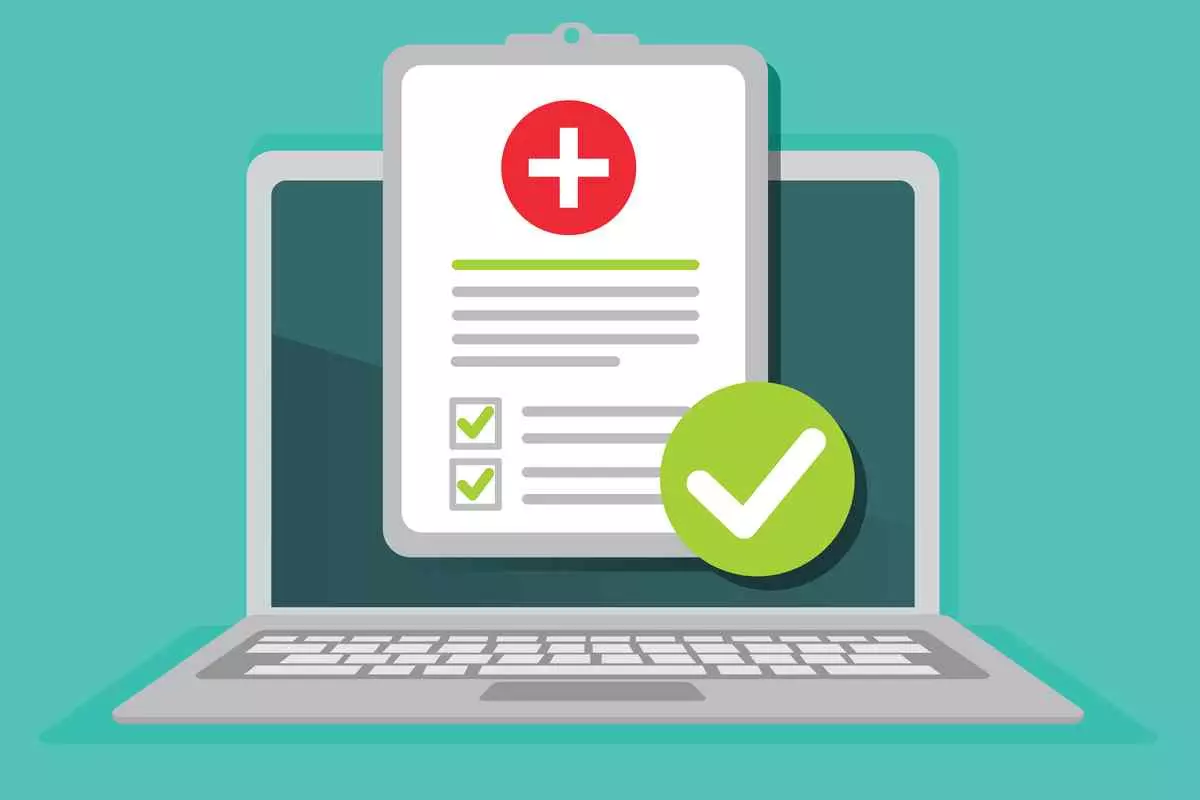There is no such thing as free, comprehensive healthcare. Many essential services are not available through the free primary healthcare offered through the Health and Social Care (HSC) department.
Fortunately, you can choose between two types of health service options in the U.K.: public and private. Public healthcare is free but limited, which is why some individuals and families opt for private healthcare. Here’s what to think about before making the switch.
Affordability
One of the most important things to consider when buying private health insurance in the U.K. is whether or not you can afford to add this extra monthly recurring payment to your budget.
On account that the UK offers free publicly funded healthcare, it may be sensible to keep your public health insurance if you cannot afford to pay for private health insurance.
How Much Does Private Health Insurance Cost?
The average price of individual private health insurance in the U.K. is about £1,500 per year. The best way to find how much it will cost you is to browse different websites or use a comparison service to look at different rates. If you need help paying out of pocket for a smaller expense, then you may consider using a payday loan online.
Each person may differ in health, so it is important to receive your quote based on your standard of life. For example, private health insurance plans will be cheaper for healthy, young, and non-smoking individuals.
There are ways to may make your insurance policy more or less expensive. For example, if you choose higher excess when choosing your policy, it will lower your premiums. However, it also makes the claims on your policy more expensive. Other factors like your and your family’s medical history can also affect the price.
You can fill out an online questionnaire to get a quote on most of the providers’ websites. It will ask about personal details such as:
- Name, address, and birthday
- Who you would like covered
- Whether or not you smoke
- Date when you would like your policy to start
- Phone and email address
- Treatment and care vs. comprehensive care
- Selecting your level of excess (will help reduce the cost of your premium)
Some providers, like Nuffield, even offer an itemised price list for their treatments. These are fixed all inclusive prices if you prefer to pay out of pocket. These prices may vary person-to-person, so the best way to find out about pricing is to speak to a service provider.
Most providers will give you a list of hospital choices and coverage choices, such as comprehensive cancer cover. In speaking with an advisor, you may also cut some costs down by choosing the cheaper options.
Convenience
Some opt for private healthcare due to the shorter wait times and increased appointment availability.
You may potentially avoid the wait times for specialist doctors. This can be especially important for those that have pain or problems that need to be addressed as early as possible.
Some private health insurance companies will offer consumers specific doctors, hospitals, and treatments not offered by the National Health Service (NHS). Some people might switch over if they:
- prefer a specific doctor or hospital that is not covered with NHS or HSC
- want to be able to pick and choose which type of medical treatments they receive
- work for a company with a private medical insurance plan
- do not want to wait in line or have long waiting periods for the next appointment or referral
Options
The most well-known and best private health insurance providers in the U.K. are:
- HCA
- Spire
- BMI Healthcare
- Ramsay
- Nuffield Health
You can choose one to work with based on your healthcare needs and book an appointment through their websites. These websites are also a good place to start if you are interested in finding out more information about private insurance providers and what different treatments and services they provide.
If need be, you can also speak to a broker if you need help finding the best private health insurance for you. Brokers can be found through the Association of Medical Insurers and Intermediaries (AMII).
FAQ
Here are some of the most frequently asked questions about private insurance.
How does private health insurance work in the UK?
In general, private health insurance is paid in monthly installments. This is called a premium. If you are covered through private health insurance and need to go to the hospital, your insurance may pay for your treatment and hospital costs if your policy is active.
Private health insurance also works as an additional insurance on top of your free public health one through the NHS. If you enjoy seeing your general practitioner, you will still be able to make appointments through the NHS to see them. Private health insurance may be able to cover your treatments, and you might be able to get your appointment sooner, a private room, your choice of treatment, and more options when it comes to different types of treatment.
What will my insurance cover?
It depends. There are different types of coverage that you may get when you have private health insurance. These include:
- Inpatient: You stay in a hospital bed for diagnosis, tests, or surgery
- Outpatient: You see a consultant or specialist for a diagnosis, test, or treatment; but you do not need to stay at the hospital overnight
- Day Patient: You see your GP for an appointment, usually for a physical examination, and do not need to stay at the hospital overnight
Each private health insurance provider is different and may or may not offer certain treatments. It is best to check with the provider to make sure what you need is covered through them. Most providers do not offer the following services:
- Treatments for chronic illnesses such as HIV, type 2 diabetes, and heart disease (Chronic illnesses are defined as conditions that require ongoing medical attention and restrict daily activities. Most of these diseases are incurable and require constant health attention.)
- Emergency treatments like ambulances that are run by the NHS and HSC
- Rehabilitation for drug usage
- Overseas treatment or using a hospital’s service abroad
- Post childbirth care and treatments
- Cosmetic surgery
- Fertility treatment
Equally important to take note of is that comprehensive medical insurance can additionally cover you for treatments including:
- Cancer
- Dental
- Optometry
- Pregnancy medical care
What are the limitations?
It is important to note that there are limitations to both public and private health insurance policies.
- There are typically annual limits placed on the individual to regulate how much you can claim. With this in mind, you may be able to use your policy to pay for a private treatment tomorrow. However, you may need to wait six months or longer before you can use your policy to get coverage again.
- There is a regulation on how much you can claim at once. With private health insurance, you are also limited to how much you can claim per condition or treatment type.
- You are regulated by how much you can claim for inpatient and outpatient treatments.
These limitations vary by provider, so when you speak to a service provider, it is important to ask them about claim limitations and ask about the cap on each regulation.
Who can get it?
U.K. residents can apply for private health insurance that covers:
- Yourself
- You and your partner or spouse
- Your entire family
- Your child or children
In addition, there are policies for those in a specific age range, such as those over 50, over 65, and over 70. These may be more expensive due to age, so it is best to do your research before committing to an insurance policy.
A Temporary Solution
If you find yourself in a situation where you need to get funds quickly because of an emergency health cost, you can request an emergency loan. These are loans that must be repaid over a period of time that you and your lender agree on. Each lender may have different terms and conditions. These loans are typically used as a temporary solution for a problem, so it is always best to do your research and speak with loved ones before making any big financial decisions.







